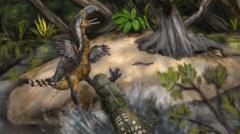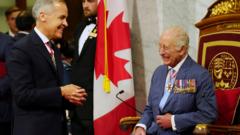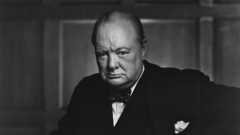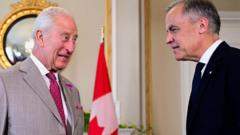In the serene backdrop of Ottawa, Holly’s Haven Wildlife Rescue and Rehabilitation Center is home to a diverse array of animals, including coyotes, porcupines, and an abundance of young raccoons and skunks. However, it is the presence of Cedar, a blind moose calf who is experiencing difficulties due to an injured leg, that has notably changed the dynamic of this rural sanctuary. Cedar, who is approximately a month and a half old and weighs around 30 kilograms, faces a future of uncertainty, as he is unable to return to the wild once his leg heals.
The founder of Holly's Haven, Lynne Rowe, is now tasked with the complex responsibility of caring for Cedar. The center typically operates under the principle of rehabilitating wildlife and returning them to their natural habitats when they are fit to survive independently. However, Cedar’s prognosis indicates he may regain limited vision in his right eye, which presents a dire reality for his potential in the wild. Animal experts, including veterinarians and moose rehabilitators, have confirmed that due to his condition, Cedar lacks the ability to fend for himself and would be an easy target for predators such as coyotes and wolves.
As Cedar munches on willow branches, Rowe reflects on the implications of caring for an animal of such size and needs. The challenge of finding a long-term care solution for him is compounded by his potential growth; he could reach up to 700 kilograms as an adult. This situation mirrors that of Holly, a raccoon who inspired the center’s name and lived there for years due to her inability to be released. Holly's Haven now faces vital questions about how to manage Cedar’s rehabilitation and long-term future, raising awareness about the complexities surrounding wildlife rescue and rehabilitation in cases where returning to the wild is no longer an option.


















